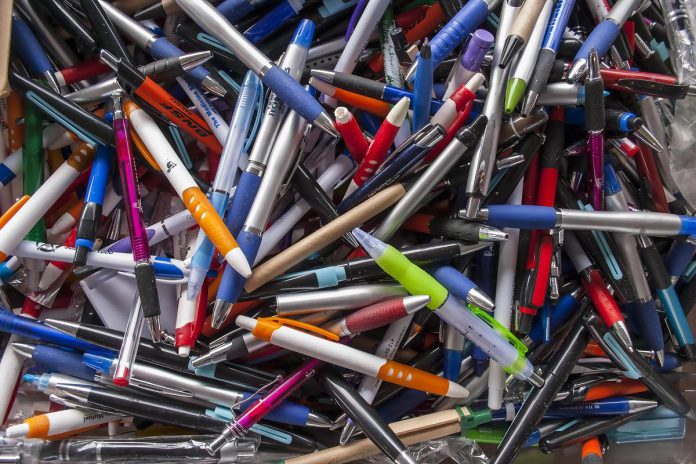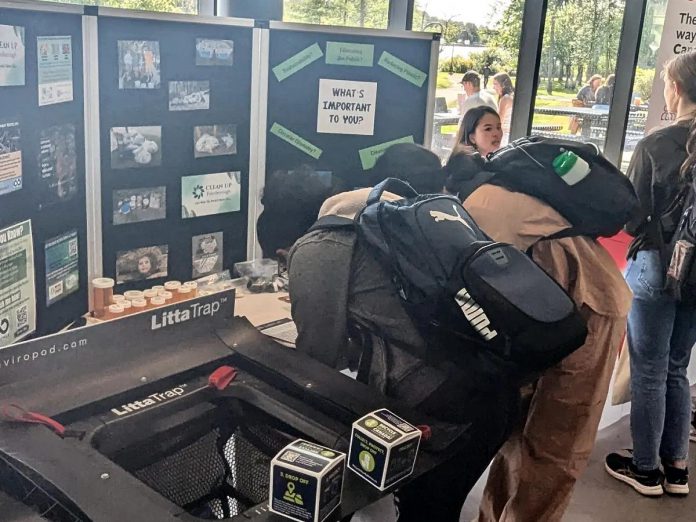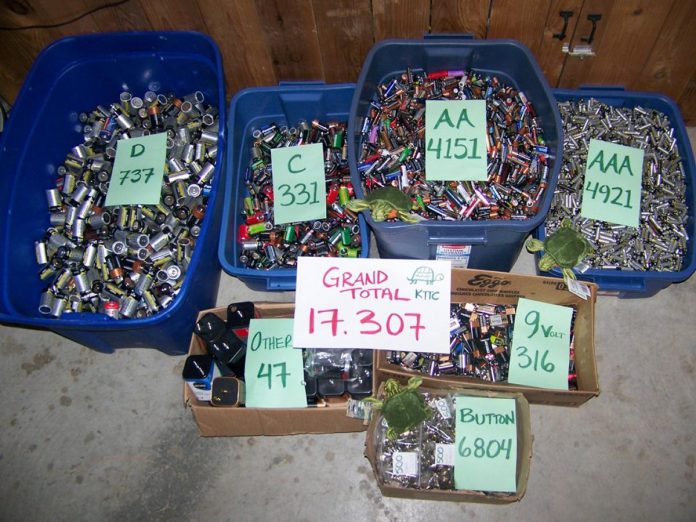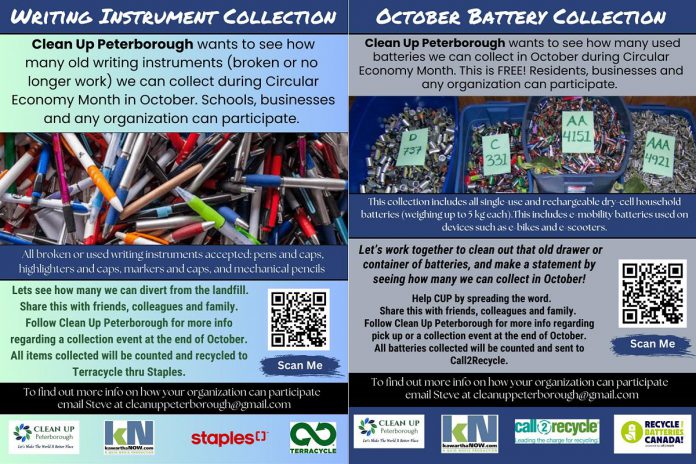
Volunteer group Clean Up Peterborough is encouraging community members to divert waste from the landfills by organizing two collections for hard-to-recycle items during October.
With one collection for used and broken writing instruments and the other for used batteries, the collections are in recognition of Circular Economy Month, a national campaign aimed at showing the benefits of a production model centred around the reuse and regeneration of materials in a sustainable way.
“In general, a lot of people try their best to do proper litter sorting, recycling, and composting,” says Clean Up Peterborough founder Steve Paul. “But now, circular economy teachings encourage not just considering the three Rs but the five Rs that include refurbishing and repurposing. It’s about trying to extend the life of items that we already have.”
Since its launch in April comprised of residents of the city and county of Peterborough, Clean Up Peterborough has collected 110 bags of litter around Peterborough’s trails, businesses, and streets.
However, Steve says much of what gets collected can’t be recycled.
“Litter can be very dirty and it’s hard to separate clean recycling,” he explains. “And if some of it is dirty, there are risks involved.”
For that reason, he notes, the collections during Circular Economy Month aim to divert the waste before it becomes waste.

The writing instrument collection is asking residents, schools, and businesses to provide their used and broken pens, markers, highlighters, mechanical pencils, and associated caps for TerraCycle’s free recycling program at Staples stores. TerraCycle will then clean the items, separate them by material type, and recycle them into raw formats that manufacturers use to make new products.
“I was involved in the Trent University volunteer fair and I talked to 40 or so students and staff, and almost 100 per cent of everyone said they didn’t even know about the program and they threw everything away instead,” Steve says. “Billions of pens alone across the world get thrown into the landfill each year.”
Interested participants can make their own donations directly to Staples for recycling, or work with Clean Up Peterborough to arrange collections with other participating businesses. Steve is also working with schools around the city as well as Trent University to make donations boxes available for students and staff to drop in their used writing instruments.
“It comes at no cost to people and it allows us to do more together to make a difference,” Steve says. “Even beyond Circular Economy Month, we can do something with this that will be sustainable in the future, and have students and businesses across our region learn and do this going forward. We might only get 100 markers diverted in October, but what if we get 10,000? That’s a huge number that we can do locally.”
Alongside the writing instrument collection, Clean Up Peterborough is launching a battery collection for all used household, watch, cellphone, e-bike, and other types of batteries under five kilograms.
While attending Fleming College, Steve launched a student volunteer group and did a national battery collection in 2012 to raise money for the Kawartha Turtle Trauma Centre at the Ontario Turtle Conservation Centre. For the charity, the group collected 17,307 batteries — the most in the province.

Steve says he found through that collection that many people and businesses keep their used batteries, storing them in a drawer or box with the intent of getting them properly recycled.
“What I don’t think people understand is sitting on a bunch of old batteries and waiting to put them out curbside or to bring them somewhere to drop off, does offer potential fire hazard and risks ” Steve says. “There are proper ways to care for those batteries.”
According to Call2Recyle, for which Clean Up Peterborough is now an ambassador, steps to ensure batteries are recycled safely with reduced spark and fire threat include storing them in a non-metal container, storing them in a cool and dry place, and taping the terminals or sealing them in plastic bags.
To reduce the risks of storing used batteries, Steve explains it’s important for people to know there are 24 locations in Peterborough that accept batteries for recycling, inclusive of Staples, City Hall, and the Peterborough Public Library.
“We’re really just trying to divert (waste) and educate people about how to properly recycle them and create a safer environment and make sure that they don’t go in the trash,” Steve says. “Everything matters in terms of diversion, because there’s lots of nasty things in batteries and they’re also extremely recyclable.”
Beyond the projects for Circular Economy Month, Clean Up Peterborough is also collecting other disposable goods like bread tags, milk bags, and pop tabs. The initiative was inspired by Earthub, a group in Ottawa which, among other initiatives, turns milk bags into sleeping mats for unhoused people.

“We’re going to find local partners and community groups that might be able to use these items to do good for our own community,” Steve says, noting that Kawartha Food Share already has use for egg cartons. “That’s an example of something that, even though it can be recycled, (has) an opportunity to have its life extended to do something good. There are so many opportunities, and I think there’s so many great things that can come out of these partnerships.”
Those interested in working with Clean Up Peterborough on the writing instrument or battery collections, or another circular economy initiative, are encouraged to reach out to cleanuppeterborough@gmail.com.
More information on Clean Up Peterborough can be found on its Facebook group.
kawarthaNOW is proud to be a supporter of Clean Up Peterborough’s Circular Economy Month collections.

























